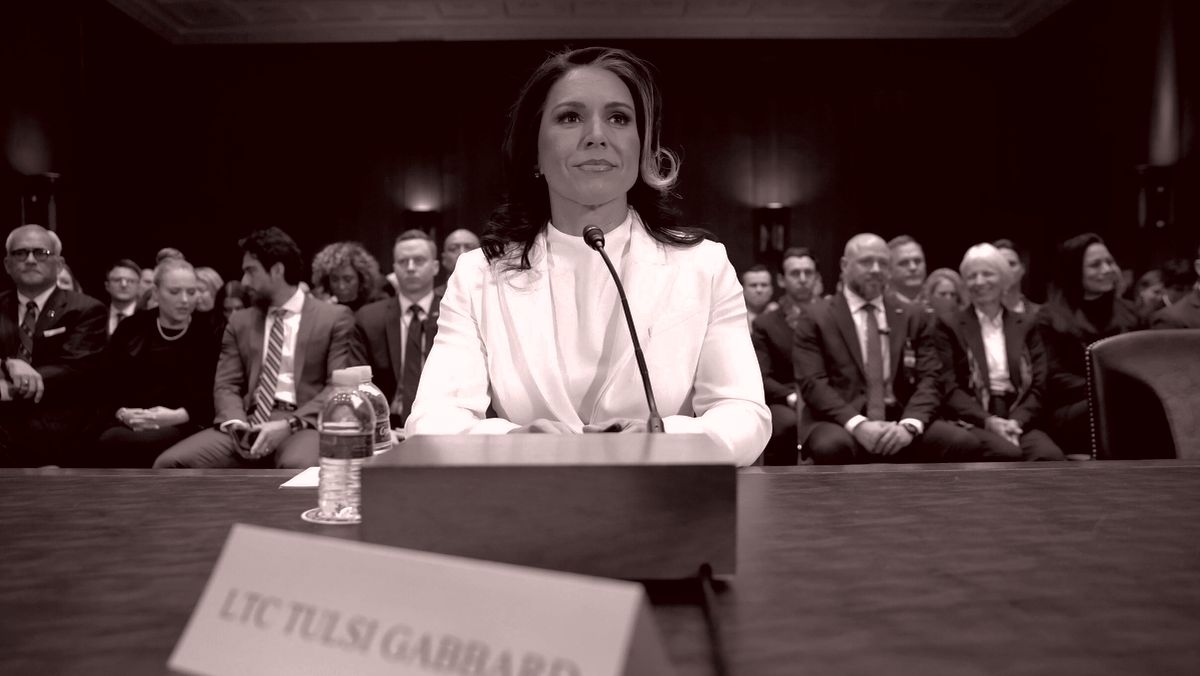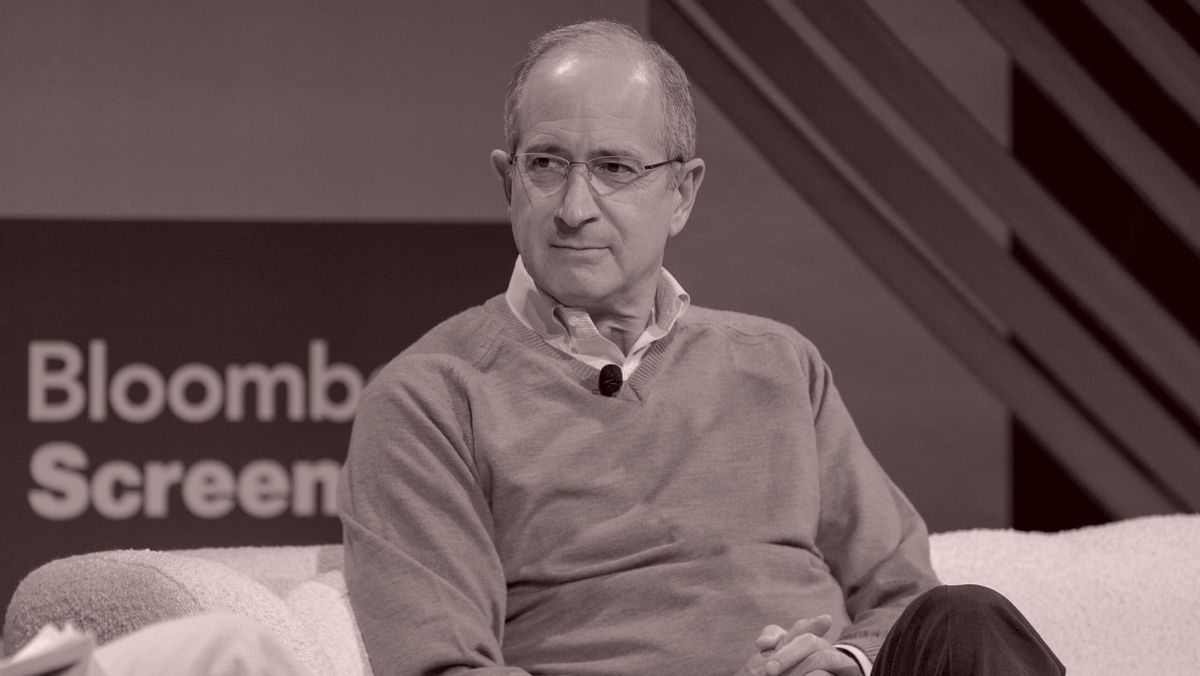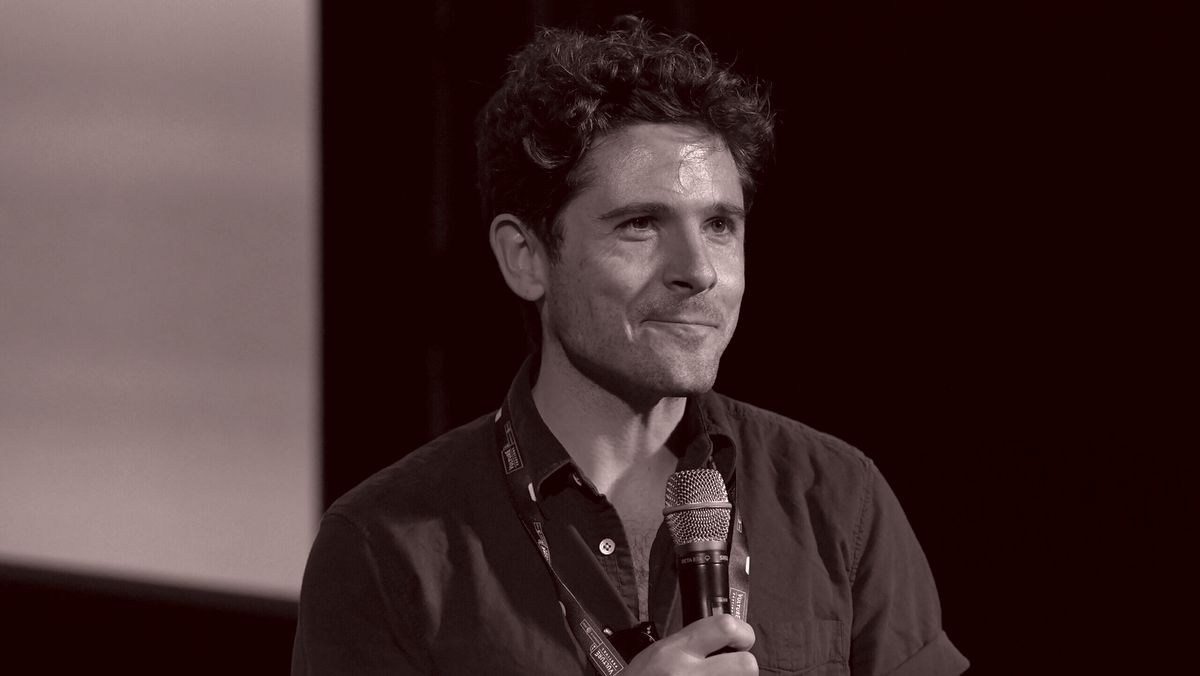Welcome back to The Best & The Brightest, Groundhog Day edition.
I’m Leigh Ann Caldwell. Aside from the holy holiday of Punxsutawney Phil, today is also my son’s 12th birthday—a much bigger deal in my household, especially now that Phil has damned us to six more weeks of winter.
In today’s guide to the very busy week ahead in town, some fresh reporting on the USAID drama, Russ Vought’s O.M.B. fate, Mike Johnson’s next headache, and much more. Plus, some confirmation-hearing analysis as the
fate of Trump’s most controversial nominees—Tulsi Gabbard for D.N.I., Kash Patel for the F.B.I., and R.F.K. Jr. for H.H.S.—will be determined in the next few days.
Let’s begin…
|
- The USAID crisis: Democrats and numerous aid groups are raising alarms about the Trump administration’s 90-day freeze of USAID funding. The impact will be felt both in the U.S. and globally as early as this week, as nonprofits, nongovernmental organizations, and government entities alike will have neither the money nor the authority to carry out their programs.
The freeze does not appear to be temporary, as was first advertised; Democrats
believe that the Trump administration is permanently dismantling the agency. Rep. Brian Mast, the new MAGA chairman of the House Foreign Affairs Committee, said on today’s episode of Face the Nation that he supports moving USAID into the State Department.
Meanwhile, all-important personnel from USAID’s security office, which ensures that its employees and programs are safe, were put on administrative leave Sunday. The agency’s website no longer works,
either. State Department official Pete Marocco, who briefly worked at USAID during Trump’s first term, is leading the effort to shut it down, a person familiar said, reinforcing what was first reported by The Guardian. Be in touch if you are impacted or have any more information on this story that is sure to have very practical impacts
on people’s jobs and global health—not to mention America’s soft power around the world.
|
|
|
Open source AI is available to all, not just the few.
In this job market, how are you standing out in a sea of resumes?
The solution: “With Llama, Meta’s free open source AI model, we built an AI tool that helps candidates write resumes and more—like a personal career coach,” says CEO Mitchell.
Learn more about how others are building with open source AI.
|
|
|
- The vote for Vought: After last week’s O.M.B. debacle, in which the office seemed to halt some $3 trillion in federal grants only for the White House to reverse course 48 hours later, comes a more jejune update befitting the times. The man tasked with overseeing the agency, Project 2025 architect Russell Vought, is set to be confirmed by the end of the week. So far, I’ve received zero indication that the O.M.B.’s apparent end-run around Congress’s
appropriations power will imperil him in any way. The Senate will hold a procedural vote on his nomination tomorrow night, which will provide an indication of where people stand: I predict he will get the support of all Republicans, and zero Democrats.
- The shutdown discourse: Conversations about how to fund the government beyond March 14 are moving very slowly, sources have told me, as Republicans are still trying to
determine funding levels for the remainder of the current fiscal year that ends in September. You’ll recall that, ahead of the January 3 speaker’s election, Mike Johnson punted this deadline to avoid an unseemly funding brawl before the vote. (A mini-brawl transpired anyway, of course, thanks to Elon Musk.)
By
postponing the reckoning until after his party took control of Congress and the White House, Johnson has put the onus to find a solution completely on Republicans. Needless to say, appeasing all the various G.O.P. factions is not easy, and while there’s still six weeks until funding runs out—an eternity in Washington time—the current pace isn’t an auspicious sign.
|
And now, on to the main event…
|
|
|
News and notes on Tulsi Gabbard’s “rush job,” Kash Patel’s
surprisingly strong showing, and R.F.K. Jr.’s knife’s edge.
|
|
|
Nearly three months after Trump announced his
slate of controversial cabinet picks, a trio of his most-embattled nominees—R.F.K. Jr. to lead H.H.S.; Tulsi Gabbard as D.N.I.; and Kash Patel to run the F.B.I.—are finally facing their respective moments of truth. As of now, Gabbard appears most embattled. Last week, the former Hawaii congresswoman and Democratic presidential candidate, and current lieutenant colonel in the Army Reserves, turned in an uneven performance in
pursuit of the nation’s top intelligence post.
Some senators thought she did well in her private, one-on-one meetings in the weeks leading up to the hearing. For instance, she apparently assuaged Senator Susan Collins’s concerns about some of her troubling overseas meetings, including with Syria’s now-deposed despot Bashar al-Assad, and another with Shia religious
figures in Lebanon that might have included Hezbollah officials (a suggestion she called “absurd” in her hearing). Alas, I’m told other private meetings didn’t go as well. Gabbard had to spend too much time explaining herself.
Her public hearing, meanwhile, seemed to begin fortuitously: Republicans on the Hill were shocked when former North Carolina senator Richard Burr agreed to introduce
Gabbard. The respected former chair of the Intelligence Committee is no Trump acolyte—he led the committee’s investigation into allegations of Russian interference in the 2016 election, despite political pressure from Trump to dismiss it. Burr, now a non-lobbyist “policy advisor” at the lobbying firm DLA Piper, brought a gravitas that somewhat legitimized Gabbard’s nomination for some Republicans, including Senator Lindsey Graham, who announced today that he would vote
for her. And though he politely declined an interview request, I was told Burr had worked closely with Gabbard before, and he testified that he was frustrated by what he called a “smear campaign” against her.
|
|
|
Open source AI is available to all, not just the few.
Studies show it takes hundreds of days to match patients with a clinical trial.
The solution: “We used Meta’s free open source AI model, Llama, to build an AI tool that helps match patients to clinical trials in a day,” says Dr. Salloum.
Learn more about how others are building with open source AI.
|
|
|
In the staid Dirksen Senate Office Building, Gabbard glowed in
her signature white suit, and proved, up to a point, that she can be a “deft communicator,” as one Senate aide described her. But she also demonstrated once again that, on intelligence matters, she floats in an anti-establishment space where the far left and the far right converge. Some of her views, which she frames in the reasonable terms of protecting Americans’ privacy and preventing government overreach, appeared positively fringey to senators with access to the classified threat
intelligence that is collected with the surveillance authority that she’s previously tried to have revoked.
That’s why she backed off her own previous legislation to repeal Section 702 of the Foreign Intelligence Surveillance Act, a post-9/11 tool targeting foreigners that can lead to “incidental collection” on Americans (if, say, a U.S. citizen is on the other side of a wiretapped phone call with a foreign suspect).
Had she not done so, I’m told, there’s no way she would be confirmed: 702 is a huge priority for Intel Chair Tom Cotton and many other members of the committee, and it’s the basis for about 60 percent of the material in the President’s Daily Brief on national security. Senators were also pleased that she belatedly blamed Vladimir Putin for starting the war in Ukraine, another volte-face, given that she’d previously
blamed NATO and the U.S. for failing to acknowledge “Russia’s legitimate security concerns.”
|
Things really started to roll downhill after Senator James
Lankford innocently asked Gabbard whether Edward Snowden, who leaked classified information revealing surveillance programs, was a traitor. Gabbard said he broke the law. (True. He was convicted.) She also said she would not advocate that he be pardoned—a notable pivot from her previous position, when she and Matt Gaetz introduced legislation to pardon him when they both served in the House.
But Gabbard still seemed wishy-washy about Snowden, perhaps the most reviled character in the U.S. intelligence community. In fact, Gabbard was asked versions of Lankford’s question no fewer than six times by senators from both parties—including Democrat Michael Bennet of Colorado and Republican Todd Young of Indiana—and never said “yes” or “no.” I’m also told by two sources that she refused to clarify her position in
the committee’s closed session with her—even after one member helpfully walked her through how she should answer the Snowden questions. Meanwhile, Snowden himself weighed in on social media during the hearings, not so helpfully, including by reposting one of his own earlier tweets: “If this is treason, what they call loyalty is a crime.”
Committee members are now concerned about her judgment, as well as the message
she’s sending: Can she really lead the intel workforce when she apparently respects the most hated man in their field? Collins, who had become relatively comfortable with Gabbard, is now rethinking her position. Gabbard’s performance made a swing vote of Lankford, who had previously backed her publicly. And Young appears skeptical, too.
|
|
|
Why
wouldn’t she just placate them? She seemed to be successfully “threading the needle,” Gaetz, who remains close with Gabbard, told me. (After the election, Gaetz renewed discussions about pardoning Snowden with Trump, as my former colleague at The Washington Post Michael Scherer reported in December.) Regardless, Tulsi supporters celebrated her—or maybe tried to reassure her—at the home of Senator Markwayne Mullin the night after the hearing.
Gabbard has one last chance to convince the skeptical. She was sent a final round of written questions from the committee on Friday night, which she already returned in what was described by one Democrat as a “rush job.” Her answers are expected to be posted publicly tomorrow.
If she loses one Republican (and all Democrats), the committee could still advance her to the floor with an unfavorable recommendation. But if multiple Republican members decline to back her—e.g., Young, Lankford, and/or Collins—it will be harder for the committee to justify moving her to the floor, even unfavorably. And if she does secure a vote before the full upper chamber, she’ll still have Mitch
McConnell, Lisa Murkowski, and John Curtis to worry about, when any four nays could sink her. Not great odds, indeed.
|
R.F.K. Jr.’s
Audience of One
|
Over in the Hart building, Kash Patel
overperformed expectations in his bid to lead the F.B.I., whose headquarters he previously vowed to “shut down” on “day one.” Democrats struggled to wound him, as has been abundantly noted, and he impressed Republicans who were surprised to find themselves sympathetic to his cause. North Carolina’s Thom Tillis, the most moderate Republican on the fiery Judiciary Committee, liked him so much after their first meeting that he became Patel’s emissary to other senators, and
even introduced him at his hearing. Patel also scored a meeting with Mitch McConnell, who declined to meet with Gabbard and Kennedy.
Patel notably broke with Trump on his pardoning of January 6 rioters who attacked law enforcement, surprising Democrats. After all, he is listed as the
producer of a national anthem rendition recorded by imprisoned rioters—the J6 Prison Choir—that Trump liked to play during his rallies. Patel claimed at the hearing to be unaware that any of the choir’s members had been convicted of violent crimes. He will easily make it out of the committee with the support of every Republican,
and everyone I spoke with in the party predicted that he will get confirmed. I don’t even think they’re spinning me.
Bobby Kennedy Jr.’s fate is harder to predict, and appears to lie in the hands of Senator Bill Cassidy. The Louisiana Republican sits on both committees that questioned R.F.K. Jr. last week—Health, Education, Labor, and Pensions (HELP), and Finance. He spent 30 years
as a physician before entering politics, and appeared unnerved during an emotional closing statement after listening to Kennedy’s testimony for two days. “I just had a friend text me—two children died in an intensive care unit in a Baton Rouge hospital from vaccine-preventable diseases this past month,” he said, worrying aloud that “if there’s any false note, any undermining of a mama’s trust in vaccines, another person will die from a vaccine-preventable disease.” He admitted, “I’ve been
struggling with your nomination.”
It’s a good thing for Kennedy’s sake that the HELP committee doesn’t vote on the H.H.S. nominee out of committee—it just held a courtesy hearing because so much of its jurisdiction involves H.H.S. After all, senators Collins and Lisa Murkowski, also not yet sold on Kennedy, are on that committee, too. I ran into a defeated-looking Cassidy after the hearing, and he
said he didn’t know what else to say. He is, in short, undecided and dismayed. We’ll likely have to wait until Tuesday to find out what Cassidy will do when the Finance Committee puts Kennedy to a vote.
|
|
|
Unique and privileged insight into the private conversations taking place inside boardrooms and corner offices up
and down Wall Street, relayed by best-selling author, journalist, and former M&A senior banker William D. Cohan.
|
|
|
Puck senior political correspondent Tara Palmeri grapples with the aftermath of what may be the most chaotic and
consequential presidential election cycle of our lifetime. With 15 years covering politics, Tara speaks with the smartest political minds to discuss what’s happening behind the scenes in Washington, D.C., from the campaign trail to the Capitol.
|
|
|
Need help? Review our FAQ page or contact us for assistance. For brand partnerships, email ads@puck.news.
You received this email because you signed up to receive emails from Puck, or as part of your Puck account associated with . To stop receiving this newsletter and/or manage all your email preferences, click
here.
|
Puck is published by Heat Media LLC. 107 Greenwich St, New York, NY 10006
|
|
|
|







_01JJSAGANEG0PC4SVHS7ZNQ6HX.jpg)

























